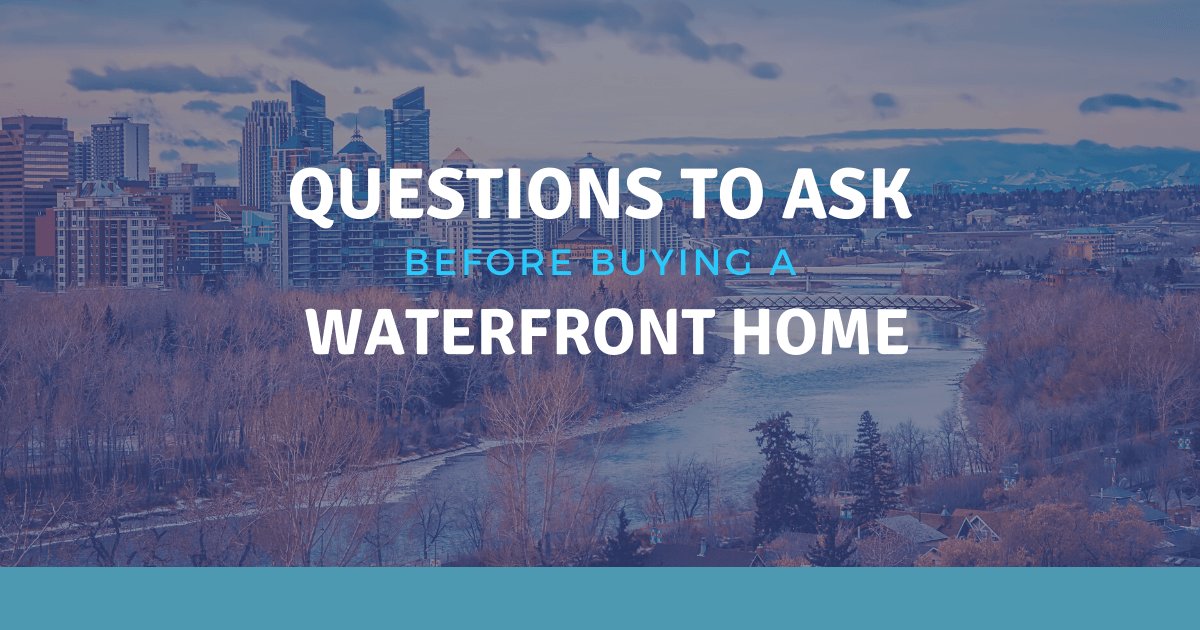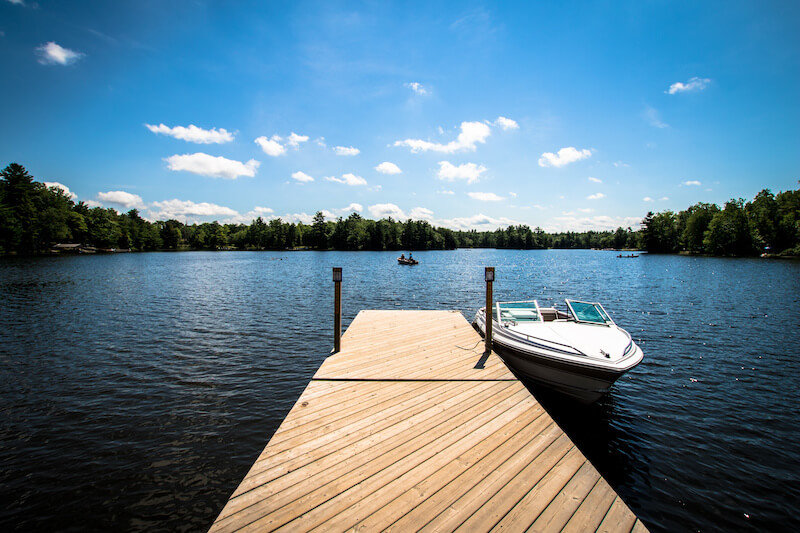Buying a Waterfront Home: 5 Questions to Ask Before Buying
Posted by Justin Havre on Thursday, September 22nd, 2022 at 7:46am.

Buying a waterfront home is an exciting opportunity. Doing so may mean having direct access to the water in some areas. In other areas, owners may have a view and the ability to walk to the waterfront itself. From lakes to rivers, buying waterfront homes requires paying close attention to more than just the way the home looks and its amenities. It is also essential to consider the laws and regulations regarding these properties. This can differ from one area to the next. To keep everything straight, it helps to know what to ask. Keep reading to learn what questions to ask before buying a waterfront home.
What Are the Boundaries of My Waterfront Ownership?
In Alberta, waterfront landowners typically own the land directly bounded by a natural water source or waterbody with a riparian right. That means they can add new land to accrete to their property. However, the riparian right to accretion does not mean a property owner owns the property to the water's edge. In most lakefront properties in the region, that is not the case. Instead, most often, the lakeward part of the property is generally the legal bank of the waterbody.
When purchasing a property like this, the land title and survey plan will outline the specific extent of the property and all of the property's boundaries. The only time a property owner owns the land (and therefore has the right to use it as fit) to the water's edge is when the land title document explicitly states "water's edge." There are some exceptions to this.
The same applies to the water near rivers and streams. A property owner does not own the water nor the "beds and shores" area of the water in most cases. Use of that waterfalls under the Water Act, including if it could be diverted. In Alberta, the Public Lands Act owns all of the beds and shores for all permanent and naturally occurring water bodies in the area. That includes all rivers, watercourses, lakes, and streams.
Has the Home Flooded Before?
Buying on the waterfront means careful consideration of the home's structural integrity, especially in areas where rivers, lakes, or other bodies of water have extended their boundaries and flooded an area. For example, flooding occurred significantly in Alberta in 2013, and those property owners may need to provide insight to buyers about the extensiveness of flooding from that event or others.
When buying a home in a flooded area, it's hopeful that there will be proper disclosure of that information from the seller. However, property buyers should not assume a home or other property is safe if this is not disclosed.
To determine what's occurred, there are several steps property buyers may be able to take. A local real estate agent may offer some insight as a first step, pinpointing the specific federally available information about flooding in the area. It's also a good idea to speak to insurance agencies who can verify if the property is in an area considered high risk for flooding. Finally, home inspections, especially those from flood inspectors, can also provide some insight.
What Is the Water Quality Like?
Whether buying a home on the waterfront or not, homebuyers may wish to learn about the quality of the water. On the waterfront, it's critical to know the state of the water, especially if a person plans to use it for swimming or other activities.
Water testing procedures vary by province. For example, Alberta Health Services provides Alberta water testing resources to inform buyers and owners about the condition of water in area rivers, lakes, and streams if those areas have been tested. In addition, this agency provides testing for recreational water monitoring for beaches along lakes and streams that are prominent in the community. They also allow interested individuals to submit water for testing, which may be necessary after purchasing a property.
Municipal water supplies from the towns and city's water sources are tested throughout Alberta regularly. Information may be available about those conditions through the Alberta Health Services.
Can I Build a Dock on the Property?

Before purchasing a property, homebuyers who wish to build a dock need to verify that they can do so. The rights and ability to do this vary between cities and towns, as well as waterways themselves.
Many lake residents hope to build structures such as swimming rafts, offshore mooring anchors, boat lifts, docks for boating, fishing, or water skiing, and other essential purchases for waterfront homes. Those property owners who have property boundaries that extend to the bank of a lake have what is considered a common-law right to access to the water, but they do not have exclusive rights to it. For example, they may have the right to place a pier onto the lakebed in this case if it is placed in front of their property.
In other areas, restrictions exist. For example, those property owners that own a backlot or in an area where a reserve parcel of land is present between the lake and their property may be able to build a mooring structure, dependent on Provincial policy. However, this may be limited. Legal issues may also exist for some properties dependent on local law.
What is the Home Maintenance Like?
Although living on the water has its perks, it also comes with unique maintenance. Waterfront properties are constantly exposed to the elements, which can take a toll on the property over time. To keep their homes in tip-top shape, waterfront homeowners must be diligent about maintenance.
For example, regular cleaning and sealing of decks and patios will prevent moisture damage and extend their lifespan. It's also important to keep an eye on things like the roof and the siding to ensure you can make repairs as soon as you notice an issue. If the home has amenities like a dock, you'll want to regularly check them as well.
Plus, many waterfront homeowners also invest in additional flood insurance to give themselves an extra layer of protection. Storms can cause serious damage to your home, and standard homeowners insurance may not provide enough coverage. Although it takes effort to keep a waterfront home in good condition, the rewards are definitely worth it.
Be Informed Before Buying a Waterfront Home
The best lakes for waterfront living offer the opportunity to enjoy many water activities. However, doing so is not always straightforward, especially in communities with extensive regulations in place. Real estate agents can provide some insight to property buyers about the specific parcel's limitations and restrictions. It's always best to investigate these factors early on to minimize any risk of buying a property that the buyer cannot use as they wish to do so.

